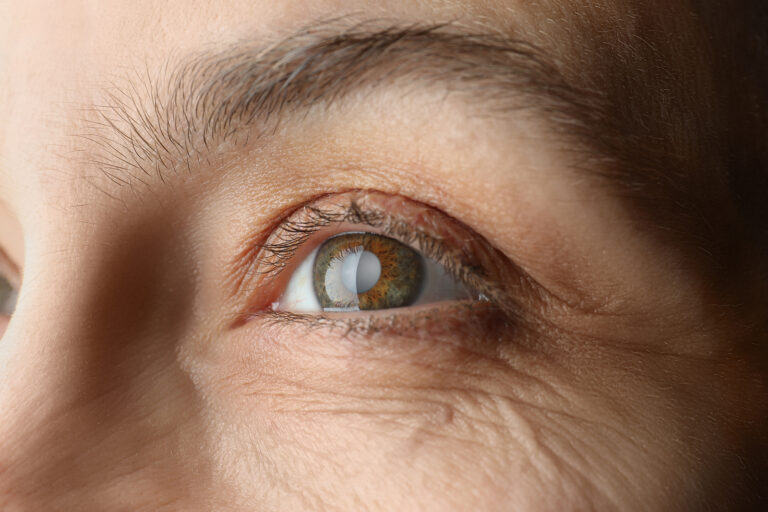Cataracts are the leading cause of blindness worldwide. According to CDC estimates, more than 30 million people in the US over age 40 are affected by them. Despite the safety and efficacy of cataract surgery, many older adults do not treat the disease, either due to barriers to treatment or simple unawareness. When a cataract develops, it clouds the lens of your eye, causing blurry vision, sensitivity to light and glare, and other vision loss. When left untreated, cataracts are debilitating to everyday life and will eventually lead to blindness.
Now, a recent study reported to the Journal of the American Medical Association (JAMA), shows another reason to receive prompt treatment for cataracts—it might help improve cognitive function. The research showed that patients who had undergone cataract surgery in either eye were about 30 percent less likely to develop any form of dementia for at least 10 years after their surgery.
The Link Between Vision and Brain Health
Past research has shown that vision loss can exacerbate mental decline because of the associated disorientation and impacts to lifestyle that come with it. But the latest results, published Dec. 6 to JAMA Internal Medicine, significantly improve researchers’ and physicians’ understanding of the connection between age-related eye disease and cognitive health.
“This kind of evidence is as good as it gets in epidemiology,” lead researcher Dr. Cecilia Lee, associate professor of ophthalmology at the University of Washington School of Medicine, said in a press release. “This is really exciting because no other medical intervention has shown such a strong association with lessening dementia risk in older individuals.”
The study was based on data collected for nearly 25 years, which followed more than 3,000 participants aged 65 years or older. Patients had been diagnosed with a cataract or glaucoma, but did not have dementia or cataract surgery at the time of enrollment. Participants were evaluated every two years for cognitive abilities. Among the group, about 850 people developed dementia, most commonly Alzheimer disease. About half of the participants received vision-improving cataract surgery during the time of the study. These subjects who had their cataracts removed had nearly 30 percent lower risk of developing dementia from any cause compared with those who did not. This lower risk lasted for at least a decade.
Why Does Vision Health Affect Cognitive Ability?
The study did not determine why cataract surgery is associated with a lower risk for dementia. Researchers suggested that improved sensory input to the brain after cataract surgery may be beneficial to reduce dementia risk. Additionally, maintaining healthy vision helps keep adults active longer.
“These results help to prove what we as physicians have often witnessed anecdotally—the devastating effects that vision loss can have on patients’ quality of life,” said Rajesh Shetty, MD, who is fellowship-trained in cataracts and glaucoma. “This research further justifies our work to promote awareness of eye disease and our passion for providing the highest quality treatment.”
What Can You Do to Prevent Vision Loss?
If you are over age 60, have noticed vision impairments such as blurry vision, trouble driving at night, or halos around bright lights, it’s important to be evaluated for cataracts by an ophthalmologist. Ophthalmologists are trained to perform eye surgery, so they can better determine whether a patient is a candidate for cataract surgery.
According to Dr. Shetty, cataract surgery offers patients the opportunity to not only restore their vision, but to possibly see better than they ever have before. It can reduce dependency on glasses and make daily activities like reading and driving easy again.
“You lose so many faculties and abilities as you age. Skills you didn’t realize you were losing, your energy, how fast you think and run. But here’s one area of your life you can actually improve upon, see better, function better, and do things you haven’t done in years,” said Dr. Shetty. “These are truly phenomenal results.”
At Florida Eye Specialists, it’s our goal to improve the quality of life for our patients. We are committed to bringing optimal outcomes through successful surgery that restore vision and let you see more of life. If you have noticed any changes in your vision, contact us for an exam and vision screening. Patients ages 60 and older should receive a comprehensive eye exam annually.

